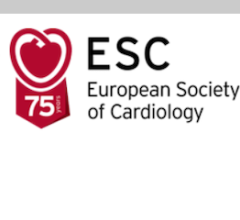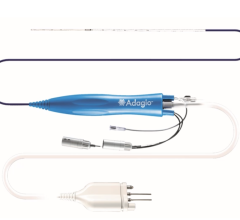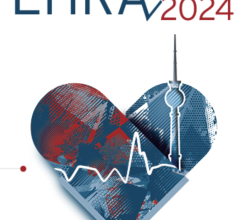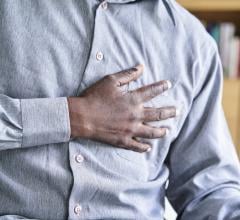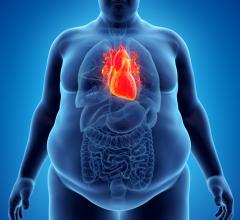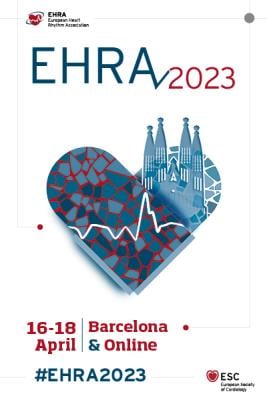
March 17, 2023 — Discover what’s new and on the horizon in the prevention and treatment of heart rhythm disorders at EHRA 2023, a scientific congress of the European Society of Cardiology (ESC).
The annual congress of the European Heart Rhythm Association (EHRA), a branch of the ESC, will be held 16 to 18 April at the Fira Gran Via, Hall 8, in Barcelona, Spain and online. Explore the scientific program.
Novel research will be showcased in the extensive abstract program. Including:
- Is high power charging of electric cars safe for patients with cardiac devices?
- Should patients with atrial fibrillation take statins?
- Is there a link between COVID-19 and heart rhythm disorders?
- How much protein should we eat to avoid atrial fibrillation?
- Do smoking and alcohol cause atrial fibrillation?
Featuring more than 120 scientific sessions with cutting-edge findings and lively debates on contemporary issues in heart rhythm management. Digital health takes center stage in numerous sessions examining the use of digital twins, avatars , wearables and remote monitoring to improve care for patients with arrhythmias.1-3 Professor Andrea Sarkozy, EHRA Scientific Program Co-Chairperson, said: “ Electrophysiologists were early adopters of digital innovations, for example in arrhythmia screening and follow-up. Wearable devices are an important evolution as they lead to more patient involvement and patient centered care. Remote monitoring became more widespread during the pandemic and will undoubtedly become standard practice in the near future. The field continues to advance, with exciting developments on the use of digital twins and avatars.”
Also on the agenda: artificial intelligence (AI) for the detection and treatment of atrial fibrillation.4,5 Professor Serge Boveda, EHRA Scientific Program Chairperson, said: “AI is an intense area of research that holds great promise for the diagnosis and management of arrhythmias. For example, computerized identification of standard and novel ablation target sites has the potential to significantly improve the success of this treatment.”
Focus on sudden death: sessions dedicated to young patients, sportspeople, and new strategies for prevention.6-8 “Cardiogenetics is taking important steps towards avoiding sudden death in young people, for example by early identification of patients with genetic mutations or arrhythmias,” said Professor Sarkozy. “ AI is pushing the boundaries in the fight against sudden death by using electrocardiogram (ECG) findings to pinpoint those at risk. Screening athletes for potentially lethal mutations is controversial: hear up-to-date evidence for and against this prevention strategy.”
Not to miss: gender disparities in device therapy.9 Professor Sarkozy said: “Women are still underrepresented in trials and as a consequence are treated based on the results of studies including mostly men.10 However, we know that women’s hearts have electrical and structural properties which differ from men’s and adapted management is needed. Research also shows that invasive procedures including device implantation are underused in women, and this session will provide insights into this ongoing problem.”
Sustainability report: multiple sessions exploring what this means for the medical specialty of heart rhythm disturbances including reuse of catheters, safety and economics.11-14 “In today’s world of environmental, economic and social crisis each part and layer of society should take responsibility, including the electrophysiology community,” said Professor Boveda. “We will explore what is possible from a regulatory perspective and hear from trailblazing European centers.”
Innovation is central to the congress: don’t miss the simulation village for a first look at sophisticated tools and the EHRA innovation summit for a glimpse of how unmet needs might be addressed in the near future.15 Plus many sessions covering new treatments and techniques, such as pulsed field ablation.16-19 Professor Sarkozy said: “Electrophysiology is a technical and rapidly evolving specialty and innovation is essential, requiring communication between engineers, entrepreneurs, start-up companies and clinicians. Pulsed field ablation uses a novel nonthermal energy source and is set to revolutionize treatment by making procedures quicker and safer.”
This year’s congress theme celebrates the 20th anniversary of EHRA. Professor Boveda said: “Stay tuned for a special session in which we look at the past, present and future of heart rhythm disorders. 20 Prominent electrophysiologists will share their lifelong learning and pioneering experience that has improved the lives of many patients with arrhythmias.”
For more information: www.escardio.org
References and notes
1. Modern arrhythmia care from the digital perspective.
2. Will remote monitoring for arrhythmias take over?
3. Alert-based follow-up: the future of remote CIED management.
4. Novel tools for AF detection.
5. How can artificial intelligence be of aid in my AF ablations?
6. New horizons in sudden death in the young.
7. Screening to reduce sports-related SCD burden?
8. New strategies to prevent SCA/SCD.
9. Gender disparities in CIED therapy.
10. Linde C, Bongiorni MG, Birgersdotter-Green U, et al. Sex differences in cardiac arrhythmia: a consensus document of the European Heart Rhythm Association, endorsed by the Heart Rhythm Society and Asia Pacific Heart Rhythm Society. Europace. 2018;20:1565–1565ao.
11. Sustainability of EP procedures in 2023.
12. Evidence-based EP sustainability: what is the current state of knowledge.
13. European experience practising sustainability in EP centres.
14. Reprocessing of catheters is a must in the era of EP sustainability.
15. EHRA Innovation summit.
16. Novel approaches relevant for VT ablation/modulation .
17. Controversial debates in AF ablation (I) .
18. Spot on: novel AF ablation technologies .
19. 'Live-in-the-Box': old and new ablation energy sources .
20. 20 years of pioneering in EP.

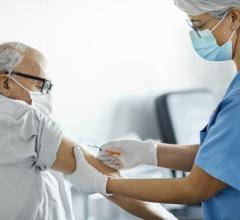
 August 29, 2025
August 29, 2025 
